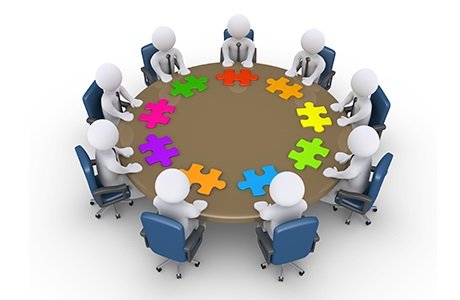Developing Student Leaders: The significance of community
A relationship with a mentor who is modelling leadership character and skills is significant for a young leader, but can we go one step better? What might be the impact if they were connected to a community of young leaders who were learning together? If you are investing in a few student leaders as a mentor, you have the opportunity to bring them together so that they are supporting each other’s growth.
Other than the obvious fact that young people enjoy the social nature of learning together, I have three related reasons for creating a leadership learning community in your school…

Teamwork. A small group of like-minded leaders could decide to take on a project together that provides each of them with different opportunities to practice leadership skills. For example, a small group of leaders that I was working with a few years ago, recognizing that they and their peers were struggling with a particular issue, decided to host a question-answer session on the topic. Two students took responsibility for arranging some trusted adults to serve as speakers for the event, while others took care of things such as invitations, venue and catering. The event was a great success, and a great leadership learning experience for those students.
Accountability. A small group of leaders who meet regularly can hold each other accountable for following through on tasks and other commitments. The other side of this accountability is the support and grace that can be offered when a student is struggling. During the preparation for the event mentioned above, our meetings involved checking in with each other on how things were going, and brainstorming solutions to problems that had arisen. The students were both held accountable and supported by the team.
Reflection and Evaluation. One of the reasons that the event was a good learning experience for my students is that it didn’t end once the event was over. We spent some time during our meetings following the event evaluating both the process and the outcome, and reflecting on what we had learned about leadership through it. Reflection and evaluation can be done individually or one-on-one with a mentor, but there is something valuable about doing it in community.
When have you experienced these (or other) benefits of learning leadership in the context of a community? What possibilities do you see for creating such a community in your school? Share your thoughts in the comments below.
Comments
 rosbarnes
rosbarnes
AuthorAnother application of this idea of community is to develop a community of mentors. How effective might your leadership development program be if in your school there were a team of mentors, who each invested in a different small group of students, but who came together regularly to learn together and support one another?